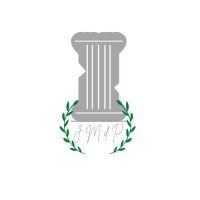Philosophy is described as a way of thinking about the world we live in, the universe around us, and society in general. It takes on the format of asking very abstract, thought-invoking questions about the nature of topics like how humans think, how the universe connects us, and how society plays a part in all of it.
The term was first coined by the ancient Greek philosopher, Pythagoras. His full name was Pythagoras of Samos and he was a well-renowned mathematician. His teachings went on to influence famous other philosophers throughout history such as Plato and Aristotle. He initially believed, like many, that the earth was the center of the universe. This viewpoint undoubtedly shaped the way he viewed philosophy in its initial stages. Ancient philosophy is considered to span the period of time between 600 BC to 1000 AD.
Medieval philosophy took place during a much more brief period of time, lasting only 500 years until 1500 AD. This time period covered the fall of the Western Roman Empire up to the Renaissance period. Modern philosophy lasted even shorter, until 1900 AD. As it evolved into its next stage, it set the groundwork for putting emphasis on critical thinking and problem-solving. Contemporary philosophy is what modern philosophy turned into, beginning in 1900 AD and lasting until the present-day.
Today, Philosophy is too vast to have one focus. For this reason, there are several branches for students to focus on and to specialize in professionally. Aesthetic philosophy is all about the study of beauty and taste. While it is very closely related to the philosophy of art, it is slightly different because the philosophy of art focuses entirely on evaluating and interpreting individual pieces of art to deconstruct its concepts and nature.
Epistemology is another branch of philosophy. This focuses on the origin, nature, and limits of human knowledge. More specifically, it delves into the theory of our methods, scope, and validity of knowledge. The ultimate goal is to seek out what distinguishes peoples’ justified beliefs from opinions.
Ethics, or moral, philosophy is a branch that is consumed with the idea of right vs wrong, as well as good vs evil, justice vs crime, and why people choose one path or another. Followers and students of this branch seek to understand and defend concepts of behavior surrounding human morality. On the less emotional side is the philosophy of logic, which focuses on truth, facts, identity, quantification, necessity, and modality.
This article was originally published on JeanetMaduroDePolanco.net





Read 0 comments and reply